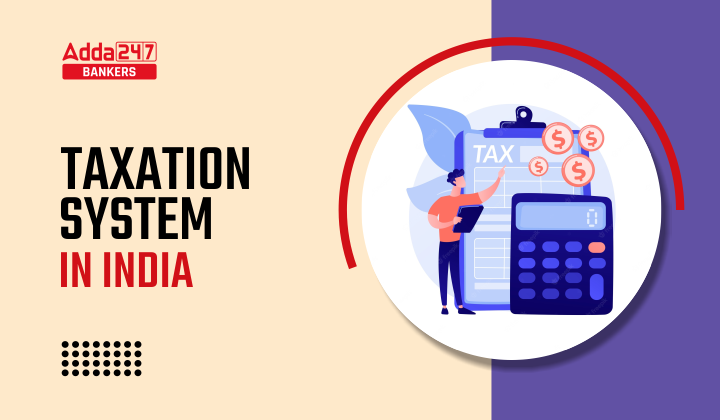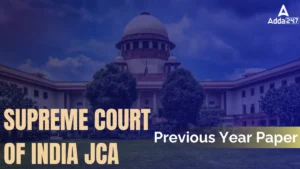Table of Contents
Hello. There are times when you read some economics news and it doesn’t make any sense. To explain certain fancy terms of economic news, we have brought up this article. Consider it as learning the ABC of the economic news
What is Tax?
Have you ever wondered how government get money to spend on the welfare of the people? It gets from the public only. So government charge different types of taxes.
So let’s understand with an example. One day you will get a Bank PO job and you will have to pay income tax. This tax will be deducted by your employer. This type of tax you can’t pass to anyone. Thus income tax is called a direct tax. There are many other direct taxes like real property tax, personal property tax, income tax or asset taxes, Gift Tax, Capital Gains Tax, corporate tax.
Now you must be wondering that, right now you are unemployed so you don’t pay any tax but you do in form of indirect tax. You must have heard of Goods and services tax which is levied almost everything you buy, for e.g : biscuit, chips, restaurant meals, petrol. Indirect Taxes are those taxes whose burden can be shifted to other person like companies shift the GST burden to the public.
So remember this whenever you think that anything is provided by the government for free, it’s a misnomer because in an indirect way you are contributing for its money.
Next question is who collects the taxes? Central Board of Direct Taxes is responsible for levying and collecting direct taxes as well as formulating other direct tax policies whereas Central Board of Indirect taxes deals with indirect taxes.
Types of direct taxes
- Income Tax: Individuals, Hindu undivided families, unregistered businesses, and other groups of persons are all subject to income tax.
- Corporation Tax: It is a tax placed on the profits of corporations and business firms. It is also called Corporate tax.
- MAT: The concept of Minimum Alternate Tax (MAT) was introduced to ensure that companies with large profits and substantial dividends to shareholders who were not contributing to the government through corporate tax by taking advantage of the various incentives and exemptions provided in the Income-tax Act paid a fixed percentage of book profit as minimum alternate tax.
- Capital Gain Tax: A capital gain is any profit or gain derived from the sale of a capital asset. Profits from the sale of capital are subject to taxation.
- Securities Transaction Tax is a tax on gains made on the domestic stock exchange on securities such as equities, options, and futures. It is a direct tax levied and collected by the central government.
Types of Indirect Taxes
- Excise Duty: Excise duty is a commodities tax in the proper sense because it is collected on the manufacturing of products in India rather than the sale of the product. Except for alcoholic drinks and narcotics, the central government imposes an explicit excise levy. It has now been replaced by CGST.
- Value Added Tax: The tax was imposed on a variety of commodities sold in the state, and the amount was set by the state. State VAT, which was in effect until July 1, 2017, had replaced the previous Sales Tax of States. It has now been replaced by SGST.
- Dividend Distribution Tax: A dividend is a payment made by a corporation to its stockholders from the company’s profits in a given year. Dividends are income in the hands of shareholders, and they should ideally be subject to income tax. Dividend distribution tax is a tax levied by the Indian government on Indian corporations based on the amount of dividends paid to shareholders.
Now lets understand the fancy terms Cess and Surcharge.
Cess and surcharge are the taxes levied by the Union Government in order to raise funds for government operations. Though both Cess and Surcharge add money to the government’s revenue, these are different in many aspects.
A cess is a tax on tax in basic terms and cess must only be applied to the specific purpose. Education cess, road cess, infrastructure cess, clean energy cess, Krishi Kalyan cess, and Swachh Bharat cess are the key cesses currently in place. For example, the Indian government collects an education cess and uses it solely for that reason, namely, education. Furthermore, this tax is imposed on all taxpayers. Cess taxes are paid to the Consolidated Fund of India. Cess is generally expected to be charged until the government has sufficient purpose and becomes dormant after the purpose is fulfilled. A cess is different from other taxes such as excise duty and income tax as it is levied in addition to the current tax (tax on tax).
For example, a 5% education cess on a 20% percent income tax will make the overall tax 21%. (20% base tax plus 5% (cess) of the 20%).
Surcharge is meant for specific group of individuals like people who are earning in the range of Rs 1cr to Rs 10 cr, there is a surcharge of 5% and 10% surcharge for above income. Surcharge doesnot have specific purpose as cess. This money is paid to India’s Consolidated Fund, which can be utilised for any purpose. A 10 per cent surcharge on a 30 per cent income tax rate, for example, brings the tax burden to 33 per cent.
Windfall taxes
These are designed to tax the profits a company derives from an external, sometimes unprecedented event— for instance, the energy price-rise as a result of the Russia-Ukraine conflict.
Related current affairs:
The Central Board of Direct Taxes(CBDT) in a statement said that the net direct tax collections so far this financial year are at ₹700,669 crore, an increase of 23% as compared to ₹568,147 crore.
Recently, the Ministry of Finance has justified the imposition of Windfall Tax on domestic crude oil producers in July 2022
The Central Board of Direct Taxes (CBDT) observed the 162nd Income Tax Day (also known as Aaykar Diwas) on 24 July 2022.
GST collection remained above the Rs 1.4-trillion mark for the sixth straight month in August and the ensuing festival season will help continue the trend. The gross GST revenue collected in August 2022 is Rs 1.43 trillion of which CGST is Rs 24,710 crore, SGST is Rs 30,951 crore, IGST is Rs 77,782 crore (including Rs 42,067 crore collected on import of goods) and cess is Rs 10,168 crore (including Rs 1,018 crore collected on import of goods).
Answer the following questions in the comment section:
1. What is fullform of CGST, SGST, IGST?
2. What is the meaning of service charge?
3. Has indirect tax on petrol and diesel comes under the ambit of GST?
You have any question in mind regarding this topic or any current affair topic. You can write in the comment section.
GA Topper Series: ABC of Economy
GA Topper Series: 7th July 2022 Quiz
Recent Posts
| Current Affairs April 2022 | |




 GA Capsule for SBI Clerk Mains 2025, Dow...
GA Capsule for SBI Clerk Mains 2025, Dow...
 The Hindu Review October 2022: Download ...
The Hindu Review October 2022: Download ...
 Supreme Court Junior Court Assistant Pre...
Supreme Court Junior Court Assistant Pre...





